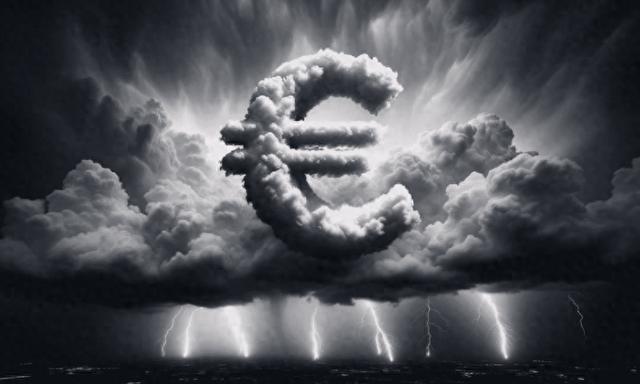
If this year in international politics has been a political dye bath triggered by the US presidential election, there is no doubt that the eurozone countries have been the indispensable toner in the past year, in France, the far-right National Alliance defeated President Emmanuel Macron's Ennahda party to become the most popular party. In Germany, the far-right AfD made record gains in the election, becoming the largest party in East Germany. In post-Brexit Britain, the rise of the Labour Party and the crushing defeat of the Conservative Party have declared the government bankrupt due to a mountain of debt. In Belgium, the Dutch-speaking Liberal Free Democratic Party of Prime Minister Jean-Jacques de Crowe lost the federal, regional and European Parliament elections and resigned in tears. In Austria, the Freedom Party emerged as the leading party in the election, winning 28.9 percent of the vote. Overall, the rise of the far right makes it more difficult to legislate in key areas such as migration, energy and climate change. As a result, the direction of the EU's internal and external policies faces more challenges and uncertainties, thus laying the groundwork for the turmoil in the financial market of the entire eurozone.
Standard & Poor's global 22 released data, the eurozone purchasing managers index in November fell to a ten-month low of 48.1, below the key 50 line of growth and contraction, both services and manufacturing entered the contraction zone, new orders fell for six consecutive months and the decline continued to expand, business confidence fell to the lowest in a year, the eurozone business activity deteriorated sharply. The sluggish recovery from a prolonged period of economic weakness has spooked international investors and alarmed eurozone policy makers.
Specifically, the purchasing managers' index, as a barometer of economic activity, is an important indicator reflecting the business climate, usually a value above 50 indicates economic expansion, while a value below 50 indicates economic contraction, while the service sector dominated by the euro zone continues to shrink, and the manufacturing sector is in a serious recession, according to Wall Street. The services sector in the euro zone's backbone economies accelerated, with business activity in Germany falling at its fastest pace in nine months, while private sector business activity in France fell for a third consecutive month and manufacturing output plunged to a record low for the year, further weighing on the overall euro zone economy.
At the same time, the European Central Bank released the annual financial stability assessment report on the 20th, showing that Italy and France will face higher borrowing costs in the next decade, which increases the prudential fiscal policy, the sovereign debt risk of the whole eurozone is rising, its financial stability is under unprecedented threat, and the European Central Bank Vice President Luis de Guindos is warning, Worries about the sustainability of euro-zone countries' sovereign debt could return.
From historical experience, the eurozone has experienced sovereign debt crises, debt problems in Greece, Italy, Spain and other countries have triggered widespread market turmoil, although the current borrowing costs of Italy and Spain are lower than ten years ago, but given the instability of the whole eurozone policy brought about by the weak market recovery. The market is still highly sensitive to the debt default risk of these countries or regions, forming a vicious circle of credit crisis.
From the perspective of the traditional fiscal policies of eurozone countries, the core problem of the sovereign debt crisis lies in the excessively high level of government debt of many eurozone countries, which leads to the credit rating downgrades of these countries or regions by international rating agencies, increasing borrowing costs and further aggravating fiscal pressure. In addition, the continued depreciation of the euro and the volatility of the stock market have made it impossible for these countries or regions to adjust their exchange rates to stimulate exports or control imports, thus limiting the potential for economic growth.
From the perspective of the external environment, the Russia-Ukraine conflict and the Middle East crisis have intensified the economic pressure on the eurozone. These external shocks have led to soaring energy prices, supply chain disruptions, rising inflation rates and intensified internal conflicts among eurozone countries, posing a severe test to the process of "strategic autonomy" of the EU. Thus, the autonomy of EU in dealing with internal economic and financial issues has been weakened to a certain extent. Specifically, the market's concern about the default risk of the eurozone debtor countries with high vulnerability is manifested in three aspects: first, the yield spread of 10-year national bonds between some eurozone countries and German national bonds has risen rapidly; second, the exchange rate of Euro against the US dollar has depreciated sharply. Third, sovereign debt spreads, which measure credit default risk, have widened due to a combination of factors.
In short, the sharp decline in business activity in the eurozone and the looming sovereign debt crisis are interrelated and mutually reinforcing. On the one hand, the continued weakness in economic activity has exacerbated market concerns about debt sustainability, and on the other hand, the exacerbation of sovereign debt problems has further weighed on sustainable economic growth. The eurozone therefore needs to adopt effective policy measures to address the current economic challenges and avoid a deeper debt crisis.

On the just concluded trading day, the three major stock indexes in the United States closed with a moderate upward trend, marking the fifth consecutive trading day of uptrend in the market.
On the just concluded trading day, the three major stock in…
By the end of 2025, the US financial sector is being swept …
In just one month, former Japanese Prime Minister Shigeru I…
On the grand stage of the financial market, expectations of…
The Japanese government officially finalized a supplementar…
A recent analysis indicates that North Korea is leveraging …